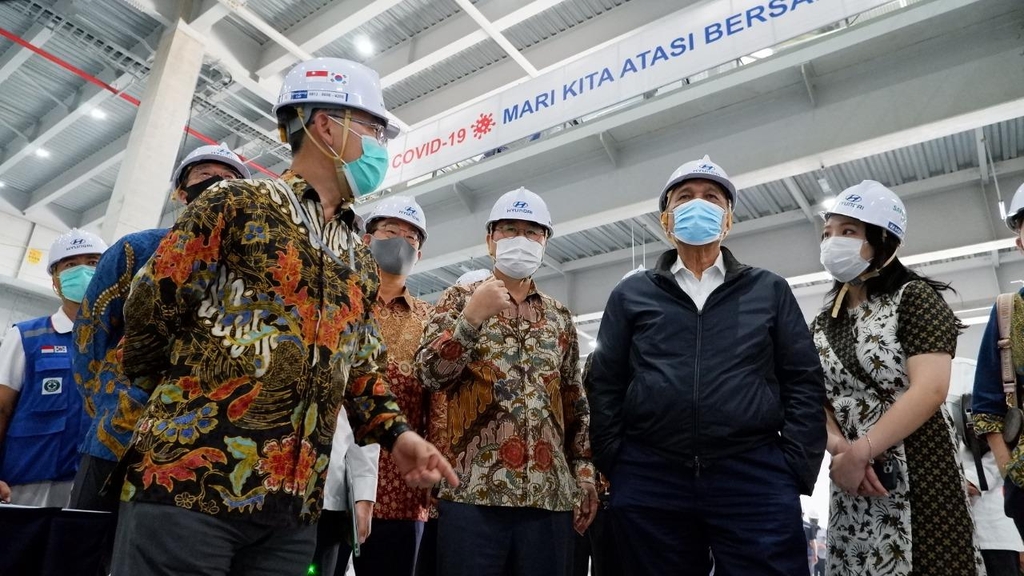Revised regulations to widen the gap between EVs and hybrids’luxury tax’
(Jakarta=Yonhap News) Correspondent Sung Hye-mi = Hyundai Motor, which is building a finished car factory in Indonesia, solved a’homework’ to produce electric cars locally.
The Indonesian Ministry of Economic Coordination revised government regulations to widen the difference in individual consumption tax (luxury tax) for hybrids that Japanese companies such as Toyota and electric vehicles, which are of interest to Hyundai, are widened.

[현대차 인도네시아법인 제공=연합뉴스]
According to a press release released by the Indonesian Economic Coordination Ministry on the 12th, the individual consumption tax regulations for electric vehicles (BEV), plug-in hybrids (PHEV), and hybrids (HEVs), which will be in effect from October this year, have been changed.
Initially, the individual consumption tax for electric vehicles and plug-in hybrids was the same as 0% of the sales price, and for hybrids, it was 2-8% depending on the displacement.
However, the gap was increased to 0%, 5%, and 6-8%, respectively, and when electric vehicles were actually produced, the gap was changed to 0%, 8%, and 10-12%.
A hybrid is a vehicle equipped with an internal combustion engine and an electric vehicle battery engine at the same time, and a plug-in hybrid can be viewed as an intermediate step between an electric vehicle and a hybrid.
The Indonesian government’s move has increased the likelihood that Hyundai Motor will produce electric vehicles locally.

[인도네시아 경제조정부 보도자료 캡처]
When Hyundai Motors completes a finished car plant in Bekasi outside Jakarta at the end of this year, it is supposed to start producing internal combustion locomotives.
Since entering Indonesia, Hyundai Motor Company has been engaged in a’wield’ over electric car production plans at the active request of the local government.
As a producer of electric vehicle battery materials such as nickel, cobalt, and manganese, Indonesia has set the goal of becoming a’electric vehicle industry hub’ in 2030 and is promoting the development of electric vehicle and battery businesses in all directions.
Hyundai Motor believes that in order to produce electric cars in Indonesia, a difference between hybrids and individual consumption tax rates must be premised.
For this reason, the local government requested an amendment, and the embassy also actively stepped up to this end.

[현대자동차 제공=연합뉴스]
In the Indonesian automobile market, five Japanese automakers, including Toyota, Daihatsu, Honda, Mitsubishi, and Suzuki, hold more than 85%, and they plan to produce hybrids first.
Indonesia’s amendment was interpreted as expressing a strong commitment to becoming a leader in the’real electric vehicle’ industry as well as hybrids.
In order for Hyundai Motors to produce electric cars in the future, homework remains, such as meeting Indonesia’s’localization rate’ conditions.
In order to be subject to the Indonesian government’s individual consumption tax rate for electric vehicles, local production must be recognized, but for this, the conditions to be met compared to assembly production are difficult.
Japanese companies, which have dominated the Indonesian auto market, are also in a difficult situation.
Unauthorized reproduction-redistribution prohibited>
2021/02/12 11:45 sent
